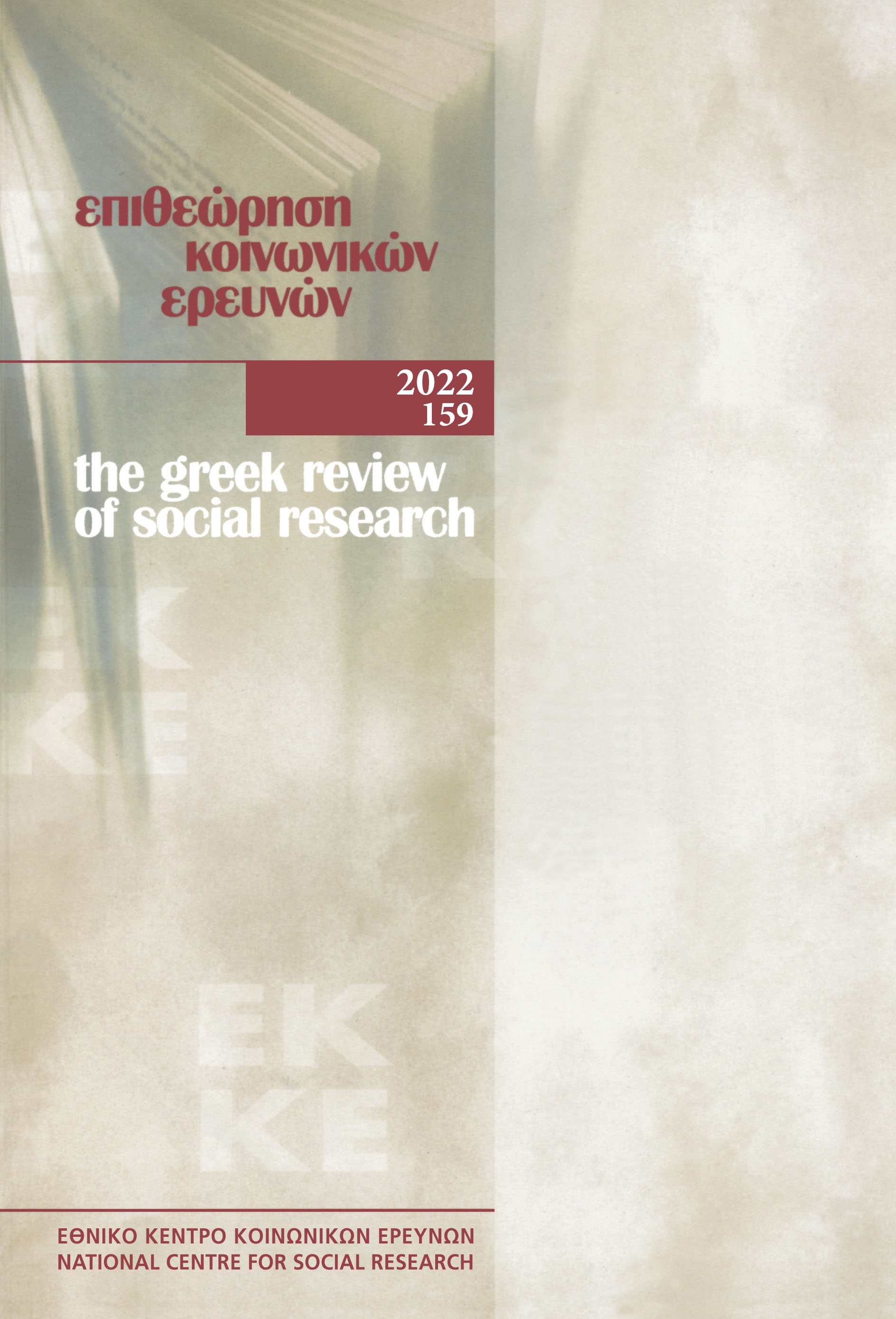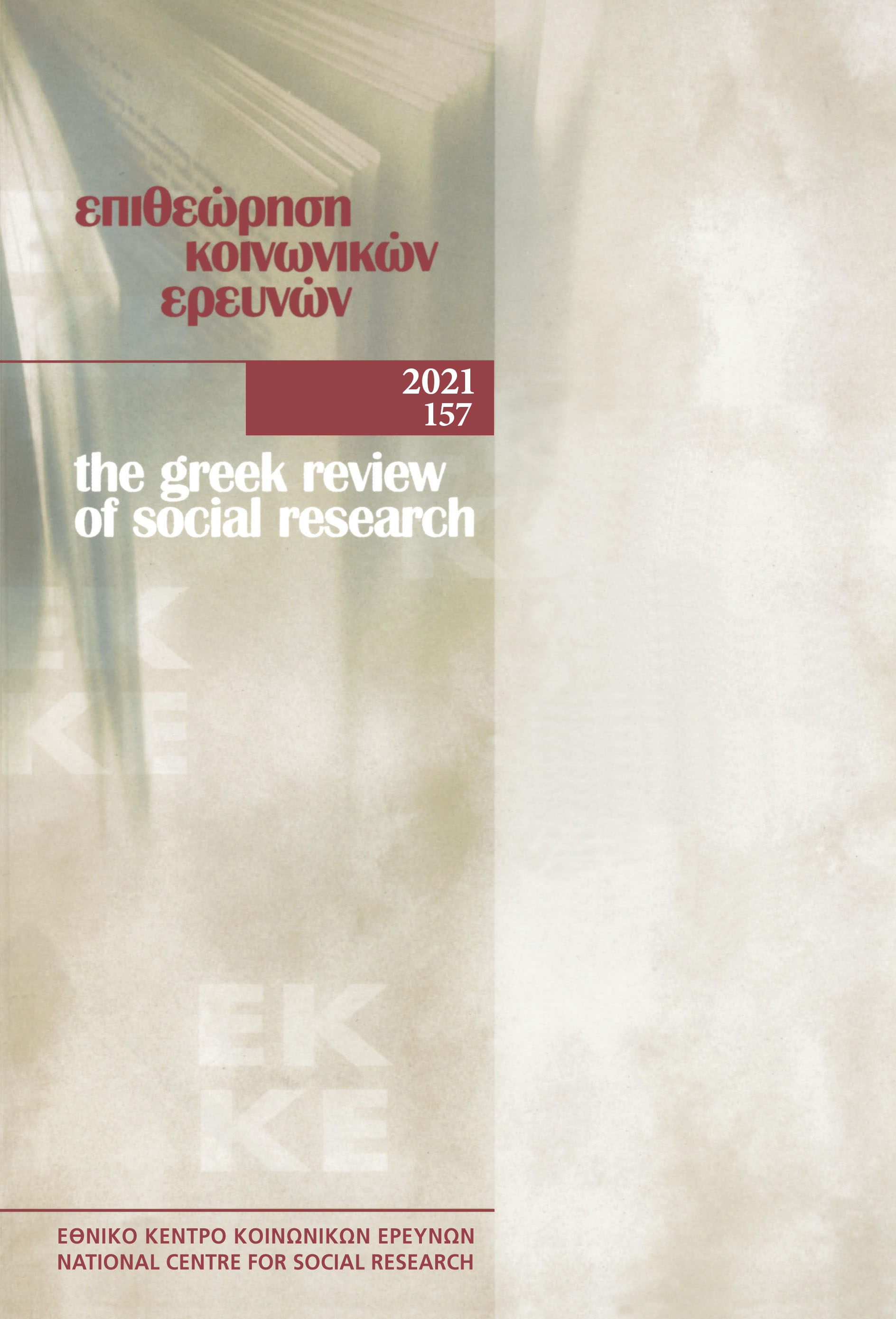Ministerial elites in Greece (2000-2019): between party, expertise and technocracy?
Abstract
The article explores the main characteristics of ministerial elites in Greece during the first two decades of the 21st century. The analysis emphasizes issues such as ministers’ sociodemographic profile, their party affiliations, their relationship with party leaders, as well as the emerging role of technocrats. Research is based on data collected under the SEGov Project, which focuses on the analysis of ministerial elites in Southern Europe. Our findings indicated a number of issues such as the limited presence of women among ministerial elites, the high educational level, the lack of interrelation between educational scientific object and portfolios’ field of activity, the diminishing role of party affiliation during the last years and finally the emerging role of technical expertise and technocrats among ministerial elites.
Article Details
- How to Cite
-
Karoulas, G., & Kakepaki, M. (2022). Ministerial elites in Greece (2000-2019): between party, expertise and technocracy?. The Greek Review of Social Research, 159, 57–90. https://doi.org/10.12681/grsr.30824
- Issue
- 2022: 159
- Section
- Articles

This work is licensed under a Creative Commons Attribution-NonCommercial 4.0 International License.
Authors who publish with this journal agree to the following terms:
- Authors retain copyright and grant the journal right of first publication with the work simultaneously licensed under a Creative Commons Attribution Non-Commercial License that allows others to share the work with an acknowledgement of the work's authorship and initial publication in this journal.
- Authors are able to enter into separate, additional contractual arrangements for the non-exclusive distribution of the journal's published version of the work (e.g. post it to an institutional repository or publish it in a book), with an acknowledgement of its initial publication in this journal.
- Authors are permitted and encouraged to post their work online (preferably in institutional repositories or on their website) prior to and during the submission process, as it can lead to productive exchanges, as well as earlier and greater citation of published work (See The Effect of Open Access).




